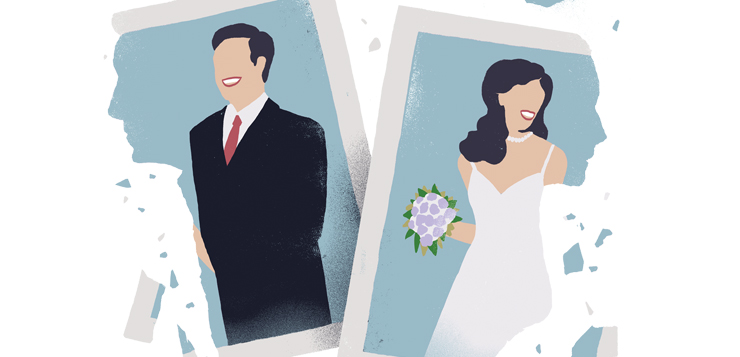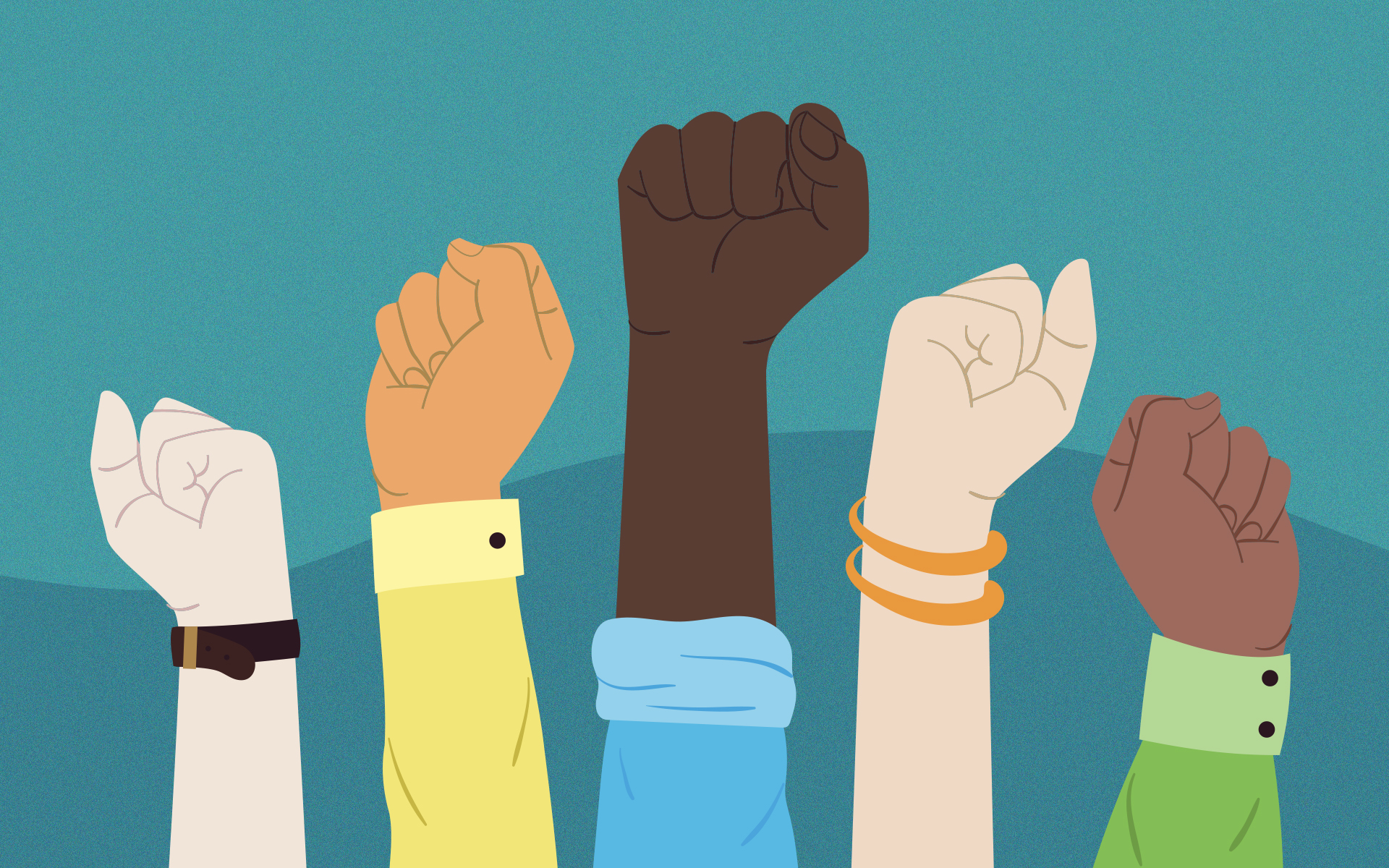Recently, I went to high school Back-to-School night with my first husband, Mike, and we ran into a colleague of his I’d never met before. “This is Christine,” Mike said brightly, and then he hesitated. “My, um, my…ex-wife.”
As soon as we walked away, he apologized. “I’m so sorry for introducing you as my ex-wife. It’s such an ugly term. I should have just said you were Molly’s mom, but he doesn’t know Molly, so I wasn’t sure what to say.” We have been divorced for ten years; we’ve both been re-married for five. I harbor no ill feeling about being called Mike’s ex-wife, but I was touched by his sensitivity and kindness. At the end of the evening, he even opened my car door for me.
Mike is just such a nice guy. We get along so well now that you’d never know that our relationship was once high-conflict, marred by anger and criticism.
I have hundreds of old narratives about what went wrong in our marriage, but I’ve never been quite sure which one is true, which one to believe. The narrative that haunts me the most is the one in which our divorce was my fault. I was too critical of Mike; I provoked too much conflict. I should have seen that my complaints about him were actually things I didn’t like about myself. I should have accepted that romance would inevitably fade, and, at the same time, I should have worked harder to keep the romance alive.
This narrative is laced with the fear that I behaved selfishly, and, as a consequence, I’ve harmed my kids irreparably. It inspires shame and regret, launching me down a slippery slope of self-criticism that leaves me feeling like I’m not good enough.
I’ve been thinking about this all week. September 10th was Rosh Hashanah, the first day of the Jewish New Year. My husband, Mark, who for the record is just as nice a guy as Mike, is Jewish, and I go with his family to services at their temple. For ten days after Rosh Hashanah, Jews show sorrow and regret for wrong done in the previous year.
I must have some catching up to do, because when I was reflecting on my regrets about this past year, I felt sorrow for mistakes I made a decade ago. It’s not that I regret my divorce; I don’t. I do believe it was the right thing for our family. But I could see clearly what I would do differently now, given the chance. It was time to let go of some old regrets.
Over the last 10 days, I moved through a few steps that have each been helpful.
1. Forgiving myself
Yesterday was the “Day of Atonement,” and it brought me some peace. I’d been reading about self-forgiveness, and Rick Hanson’s recommendations unlocked something in me. He advises us to acknowledge the facts surrounding the circumstances or behavior we regret, including those that are hard to face. I let myself remember the divorce, and all the people that it affected, both then and now.
Ten years ago, I simply didn’t have the skills I needed to keep my marriage together. There is an innocence there that is easy to forgive.
Then, I thought about my mistakes. But Hanson recommends distinguishing between our moral failings and simple unskillfulness. This step was a huge revelation to me. As I look back on my failed marriage, I see a mess of unskillfulness. Even things that might be perceived by others as immoral—to some people, divorce itself is immoral—seemed to me to stem from my own lack of certain emotional skills.
It turns out that the list of things I’d do differently wasn’t that long. Ten years ago, I simply didn’t have the skills I needed to keep my marriage together. There is an innocence there that is easy to forgive.
2. Taking accountability
This sort of self-reflection can be really productive. It’s important to take accountability for our mistakes and our failings, and to repair the hurt we cause other people. How else can we do better?
Seeing that I behaved unskillfully allows me to take responsibility for mistakes that I made, rather than clinging to my judgments and justifications. At the same time, it helps me not let my mistakes define who I am. I am more than my missteps and bad habits.
I can practice now the skills I needed then.
It also gives me somewhere to go: I can practice now the skills I needed then. This approach helps me respond when well-meaning people—observing how well Mike and I now parent together—wonder out loud if we ever regret getting divorced. We are different people now than we were then. Getting divorced gave us ample opportunity to practice more skillful ways of relating to one another.
3. Practicing acceptance
Here’s something I’ve learned the hard way: Acceptance is the precursor to atonement. I’ve finally surrendered resistance to my divorce and my unskillfulness, as well as the sorrow that I’ve felt about it all.
I’ve also, finally, found peace in accepting that there is a lot I don’t know. I don’t know if the marriage would have worked if I’d been more skillful. It’s easier to think that there is no way it would have, so it doesn’t matter what we did and didn’t do. For ten years, I’ve been constructing narratives that make my memories more black-and-white than they really are. These narratives provide me with certainty that I did the right thing. But only until they don’t.
“Doubt is not a pleasant condition, but certainty is an absurd one”
―Voltaire
Certainty can be temporarily reassuring, but it can also turn on us, revealing its opposite. One minute I’m sure that my marriage with Mike would never have worked; the next I’m sure it could have, because look how well we get along now.
Accepting uncertainty is such an underwhelming alternative to feeling certain that you did the right thing, even if feeling right doesn’t last. But, ultimately, uncertainty is the lesser of two ills; as Voltaire wrote, “Doubt is not a pleasant condition, but certainty is an absurd one.”
I do know one thing for certain, though: If I’d made different choices ten years ago, I would not have the life I have now. It’s a life that I love, one where I’m happy and fulfilled. I love Mark and his big, loud Jewish family. I love our marriage, even when it’s hard. I can’t imagine life without my amazing stepchildren, whom I love and adore beyond reason. I know my daughters can’t imagine life without their stepsiblings and stepparents. It’s a life that I would never consciously give up. But, ironically, it’s one that I was giving up, unconsciously, every time I harbored those old fears and sorrows.
Accepting the past and all its messiness has allowed me to let go of what I’d actually already lost. Already I’m better able to shift my gaze away from the past, to focus my attention on the present. The past, and my stories about the past, no longer feel relevant. There is no emotional hook. This, I’ve come to believe, is atonement.
This article was adapted from Greater Good, the online magazine of UC Berkeley’s Greater Good Science Center, one of Mindful’s partners. View the original article.
A Mindfulness Practice to Cultivate Nonjudgmental Awareness
Explore this 15-minute guided meditation to open up some space for yourself to sit with what is, rather than what if.
Read More
Some Love Stories End
It can be tough to admit that a romance that began with so much joy and promise
just isn’t working. But your lover doesn’t need to become your enemy.
Read More









